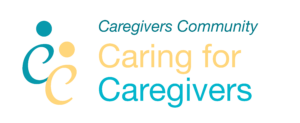** Edited by
Baha and Margaret Habashy
The Challenge
How do you manage the financial stress?
From medical expenses to daily needs, caregivers navigate a challenging financial landscape. As caregivers grapple with the unanticipated costs associated with providing adequate care it is important to prioritize the need for financial planning.
Meet Sarah
Meet Sarah, a single mom courageously navigating the financial whirlwind as she cares for her son, Jake, battling cancer. In their modest abode, medical bills relentlessly crash like waves, challenging their stability.
Sarah, draped in love, confronts the daily struggle against chemotherapy costs, medications, and special diets. Grocery shopping becomes a precarious tightrope walk, and she learns to stretch a dollar like an artist with limited colors. Sacrificing her well-being, Sarah ensures Jake’s comfort, the worry lines on her face echoing silent sacrifices.
In this symphony of struggle, the importance of financial planning emerges as a beacon of hope. Sarah dreams of a future where she can focus solely on being the unwavering support her son needs. Despite the adversity, she remains a resilient warrior mom, fighting not just for today, but for a brighter, healthier tomorrow for Jake.
BIBLICAL INSIGHTS
Isaiah 41:10: “So do not fear, for I am with you; do not be dismayed, for I am your God. I will strengthen you and help you; I will uphold you with my righteous right hand.”
Caregivers may find solace in this verse as it reassures them that they are not alone in their journey. The promise of divine support can be a source of comfort, encouraging caregivers to face each day’s challenges with a sense of hope and assurance.
Matthew 11:28: “Come to me, all you who are weary and burdened, and I will give you rest.”
This verse extends an invitation for caregivers to find rest and solace in their faith. It acknowledges the weariness that caregiving can bring and points to the promise of finding peace and relief in their connection with a higher power.
Psalm 34:17-18: “The righteous cry out, and the Lord hears them; he delivers them from all their troubles. The Lord is close to the brokenhearted and saves those who are crushed in spirit.”
For caregivers facing the emotional weight of caring for a loved one with a serious illness, this Psalm offers assurance that their cries for help are heard. It emphasizes the closeness of a compassionate higher power, providing a sense of divine presence in moments of hardship.
THOUGHTS AND TIPS
- Create a Support Network: Example: Reach out to friends, family, or local community groups to form a support network. They can assist with daily tasks, provide emotional support, or even contribute financially.
- Utilize Available Resources: Example: Investigate local government or non-profit organizations that offer financial assistance, respite care services, or support groups for caregivers.
- Financial Planning: Example: Develop a budget that prioritizes essential needs and explores options for financial assistance, such as medical expense deductions or grants for caregivers.
- Explore Telehealth Options: Example: Use telehealth services for routine medical check-ins, reducing the need for frequent and costly in-person visits.
- Meal Planning and Preparation: Example: Batch-cook and freeze meals for the week, making it easier to provide nutritious food for your loved one without overspending.
- Seek Professional Advice: Example: Consult with a financial advisor to create a personalized plan that addresses long-term financial goals, insurance coverage, and investment strategies.
- Prioritize Self-Care: Example: Schedule regular breaks to relax and recharge. This could involve taking a short walk or enjoying a hobby.
- Stay Organized with Medical Information: Example: Maintain a centralized document or digital file containing medical records, appointment schedules, and prescription details to streamline healthcare management.
- Explore Remote Work Opportunities: Example: If possible, inquire about flexible work arrangements or remote job opportunities to maintain financial stability while fulfilling caregiving responsibilities.
- Community Resources for Respite Care: Example: Look for local programs or volunteers that offer respite care, allowing caregivers to take short breaks and attend to personal needs.
- Educate Yourself on Insurance Coverage: Example: Review health insurance policies thoroughly to understand coverage details, ensuring maximum utilization of available benefits.
- Utilize Technology for Efficiency: Example: Use smartphone apps to set medication reminders, track appointments, and easily communicate with healthcare providers.
- Explore Prescription Assistance Programs: Example: Investigate pharmaceutical assistance programs or patient advocacy organizations that may provide financial aid for prescription medications.
- Legal and Financial Planning: Example: Consult with an attorney to create legal documents such as power of attorney and wills, ensuring a clear plan for the future.
- Connect with Local Caregiver Support Groups: Example: Attend local or online caregiver support groups to share experiences, exchange tips, and access valuable resources within the community.
- Explore Alternative Therapies: Example: Investigate complementary therapies covered by insurance, such as physical therapy or occupational therapy, to improve the quality of care.
- Delegate Tasks: Example: Delegate responsibilities among family members or friends, ensuring a shared commitment to caregiving tasks and reducing the burden on one person.
- Take Advantage of Employer Benefits: Example: Inquire about employee assistance programs, flexible work arrangements, or caregiving support benefits offered by your employer.
- Plan for the Future: Example: Work with a financial planner to establish a long-term caregiving plan, including provisions for retirement and potential future caregiving needs.
At our Community Forum you post your prayer requests, gain spiritual guidance, seek emotional support, and get answers to your caregiving questions. Moderated by qualified Christians, pastors, and healthcare professionals, it is our gift to serve you.
** Note: This blog content was developed with help from ChatGPT 3.5. The story, names and images are for illustration only.






Leave a Reply
Want to join the discussion?Feel free to contribute!